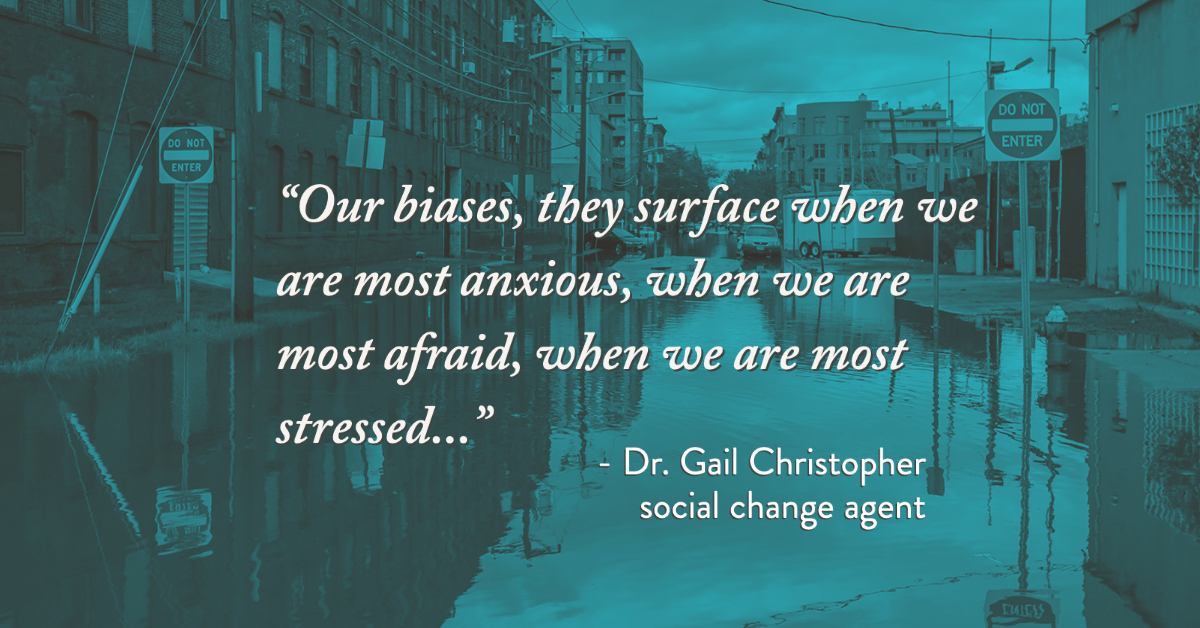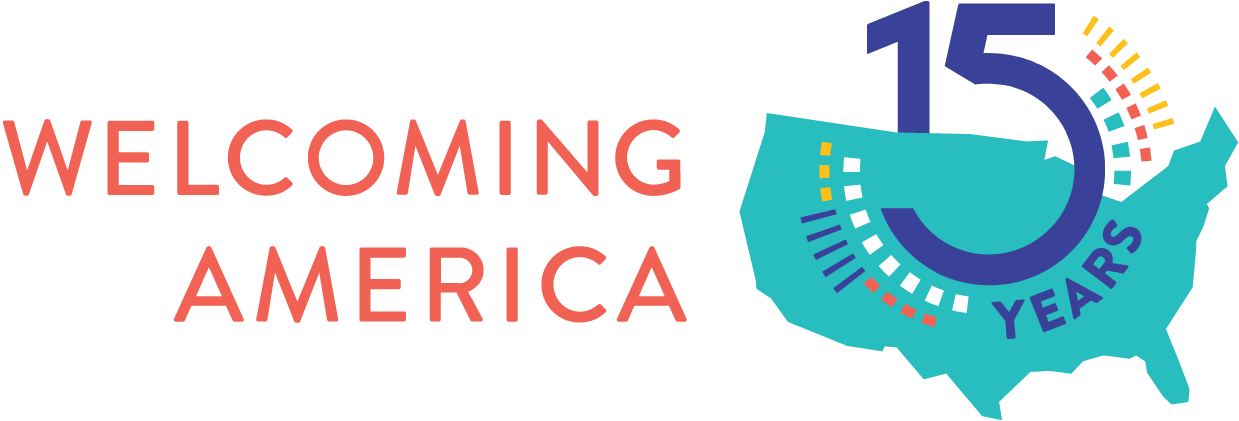
A gap in the system: creating more inclusive emergency management practices
Hurricane Katrina, the Flint, MI water crisis, the COVID-19 pandemic. These are just a few examples of events that disproportionately impacted minority and marginalized communities. Inequality in emergency management doesn’t end there, disasters have been shown to increase inequality long after the storm has passed or the environmental contamination has been addressed.
Creating an inclusive infrastructure and building cultural competency within organizations that respond to these events is vital to ensuring that all people within a community are treated fairly when disaster hits.
Coming together to solve common problems
To address this need, Welcoming America led a Community of Practice over the past year to guide our members and their communities on how to best implement inclusive emergency management locally.
Launched in May 2020, the Inclusive Emergency Management Community of Practice (CoP) set out to build inclusive and equitable practices in the emergency management sector, specifically those with immigrant and refugee residents. The CoP convened over 40 people representing nonprofits in Memphis, TN and Boise, ID, to departments of local governments in Dallas, TX and Roanoke, VA.
A Community of Practice brings people with a like-minded mission together to share and collaborate on how to address common issues faced by the group. The CoP was led by three Welcoming Network members: Julia Trujillo (City of Portland, ME, Office of Economic Opportunity), Anka Badurina (Building One Community, Stamford, CT), and Edmundo Lijo (Assistant City Attorney, City of Saint Paul, MN).
Over eight months, participants met regularly and engaged with thought leaders who are making inclusive emergency management a priority, such as Chauncia Willis, Executive Director of the Institute for Diversity and Inclusion in Emergency Management (I-DIEM). As a group, participants were able to identify commonalities and address them collectively.
Participants found strength in coming together with others and sharing similar challenges in inclusive emergency management, highlighting a need for this work to continue nationwide.
“The CoP made me realize that I needed to do a better job of focusing on my connections with our immigrant and refugee communities. I realized how difficult and strained communications had become because of the pandemic, but that these lines of communication were crucial to effect emergency management during the pandemic. The CoP gave us a better framework and plan for developing immigrant inclusive emergency management policies for our city.” - Edmundo Lijo
“Above all, [the CoP] validated that the challenges [from inequities in emergency management and lack of resources in hard-to-reach populations] are shared across the country. It helped us combat the isolation one feels while doing this work in local government. The problem solving and ideas were extremely helpful during very stressful times.” - Julia Trujillo
Developing tools to address key issues
Through the conversations and questions raised during the CoP, Welcoming America and the I-DIEM created the toolkit, “Establishing and Maintaining Inclusive Emergency Management with Immigrant and Refugee Populations Checklist”. This tool provides guidance on building trust with immigrant communities, creating community assessments, addressing language access, and more.
As the pandemic continues and climate change accelerates the rate of natural disasters, emergency management will be a key sector responding to the crises. Communities that prioritize an inclusive response to emergencies are more resilient and less vulnerable when disasters strike.
To share the knowledge and lessons learned from the CoP, Welcoming America hosted a public webinar earlier this month moderated by Welcoming America Western Regional Manager George Zavala with panelists Chauncia Willis.

